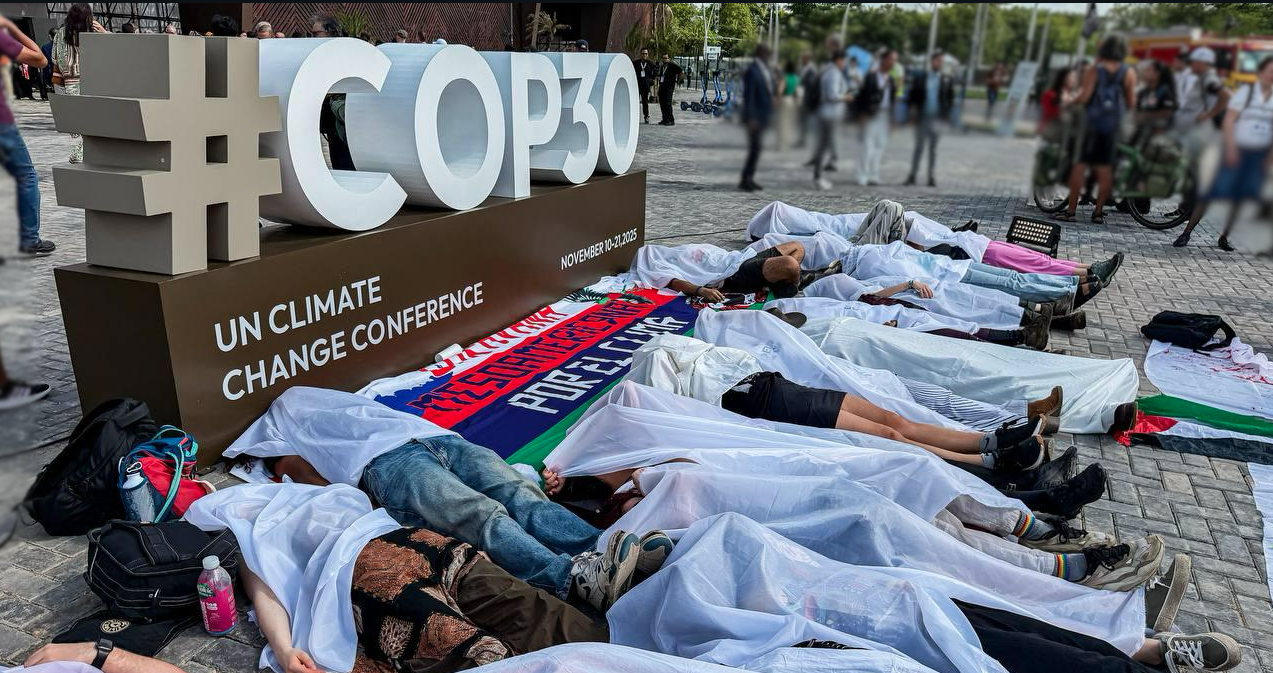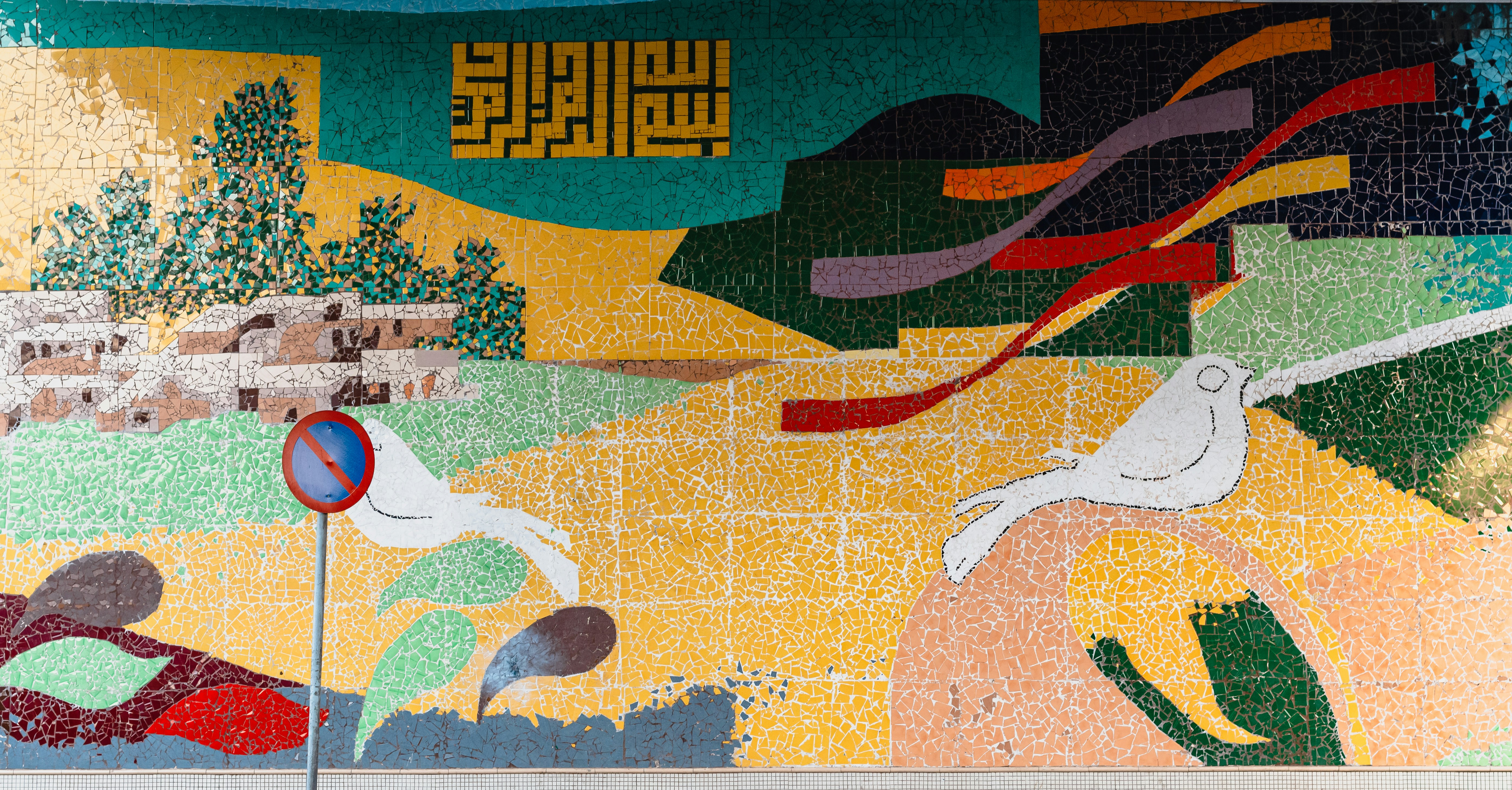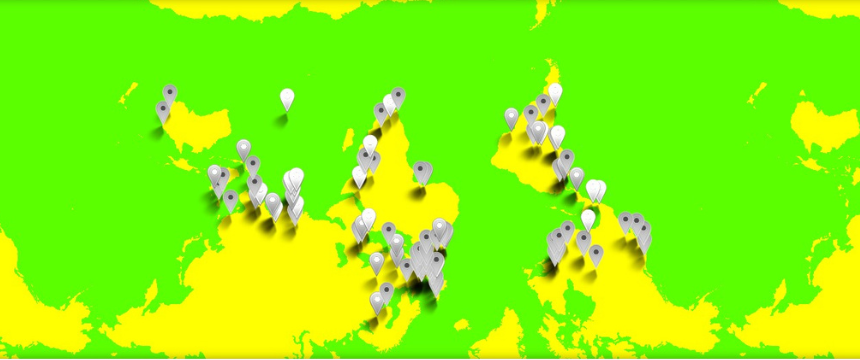We write these words from the student encampment for the liberation of Palestine at the Autonomous University of Barcelona. On Thursday, May 30th, the legislative body of the administration approved an academic boycott of Israel. This milestone is just the next step in a broader campaign to sanction Israel for the never-ending Nakba it inflicts on the Palestinian people. Whatever the long-term solution for peace and justice in historic Palestine, the Palestinian demand for national liberation is one that the degrowth movement must amplify. Indeed, in Palestine and beyond, political sovereignty is a necessary condition for the economic transformation which degrowth requires.
Since October 7th, the attention of many of our activists has shifted away from discussions of social-ecological transformation to focus on halting the ongoing genocide. This is as it should be, as the data suggest that the scale of suffering is unlike anything the world has witnessed this century. Proponents of degrowth should not see the struggle for Palestinian liberation as a distraction, however, but rather integral to achieving a just and sustainable future for all.
The ecocide that accompanies imposed starvation and violence in Gaza and the West Bank is well documented, as is the ecological cost of the Israeli military. Nonetheless, Palestine should remain at the forefront of concerns within degrowth less because of its immediate ecological toll, but rather, as we will illustrate, because the Palestinian question represents the sharpest contradiction within the existing capitalist world order.
The last eight months have shown that we do not live in a liberal rules-based international order. Instead, we inhabit a biosphere driven towards collapse by capitalist imperialism. Nowhere is the brutality of our global economic system and the moral depravity of its backers – chief among them the United States – as clear as in the existing settler-colonial occupation and destruction of Palestine and its people. To understand why Palestinian resistance represents the sharp edge of anti-colonial struggle today, we must first clarify why the region holds such importance for the United States and its allies.
The colonisation of Palestine is inextricable from the history of Zionism. This ideology is often associated with intellectuals such as Theodor Herzl, who argued in favour of the establishment of a Jewish state in Palestine. While the spread of Zionist ideas was fuelled by widespread European anti-Semitism, the project has been controversial, even among the Jewish community, since the nineteenth century. Some of the earliest proponents of Zionism in the first half of the 19th century were non-Jewish British imperialists who sought the creation of a Zionist entity in what was then the Ottoman Empire. Britain would go on to become Zionism’s primary sponsor in the 20th century until the creation of the state of Israel in 1948.
In Dying to Forget: Oil, Power, Palestine and the Foundations of U.S. Policy in the Middle East, Irene Gendzier recounts what led the US to take over from the British. By 1948, the decisive argument against supporting the rights of Palestinians was that their victory would embolden Arab self-determination in the rapidly decolonizing region, whereas crushing any hope of national liberation would open up new markets for Western companies. Through this process, Israel became the most important outpost of the US empire in the Middle East. As Joe Biden famously declared as far back as 1986: “There is no apology to be made for Israel. None! Israel is the best 3-billion-dollar investment we make. Were there not an Israel, the United States of America would have to invent an Israel to protect our interests in the region.” The global empire that Biden now leads has interests of its own in the territory of historic Palestine.
The Middle East is not the world’s most war-torn region because of the power of the Israel lobby in the US, nor because of any ancient hatreds that occupy the imaginaries of today’s orientalists, but because of its centrality to polarised capital accumulation on a global scale. The region’s economy is largely structured around oil. By using Israel as an effective military base over the last 70 years, the US ensures fossil capital accumulation – denominated in US dollars and often reinvested in the US economy, particularly in its military-industrial complex. The geopolitical importance of the Middle East is reflected in the US’s determination to maintain, at devastating human cost, its control in the region – through military bases in Iraq and Syria, through Israel, and through its other allies from Egypt to the Persian Gulf. The Abraham Accords normalising relations between these countries are just the latest step in a cold peace designed to stabilise polarised capital accumulation. Yet the events that began on October 7th have brought a hard stop to this process of normalisation while recentring the struggle for Palestinian liberation.
Since October 7th, Israel has failed on its own terms to defeat the guerrilla fighters of the Palestinian resistance movement — the coalition between Hamas, Islamic Jihad, the Popular Front for the Liberation of Palestine, and others. In addition, it has laid bare the violence inherent in its colonial project for the world to see. The aforementioned groups may or may not embody the values that degrowth espouses. But our movement should think back to the closing ceremony of last year’s Beyond Growth conference in Brussels, during which Anuna De Wever reminded us that “there is no degrowth without decoloniality.” We know that decolonisation is not a metaphor. As such, we do not have the right to dictate to the Palestinian people what form their struggle should take. This stance does not mean that we must condone every single action taken in the name of Palestinian resistance; indeed, we mourn the suffering of every civilian in this century-old conflict. Nonetheless, if degrowth is to be anti-colonial, it owes its solidarity to the Palestinian fight for national liberation.
Why national liberation? First and foremost, this demand is core to the Palestinian fight for self-determination. The focus is no coincidence, however, because fulfilling the needs of the local population – in Palestine and beyond – requires sovereign control over national economies. Imperialism cannot brook this level of autonomy, and Western powers have repeatedly foiled it. Neo-colonial arrangements ensure the appropriation of labour, resources, and energy from the Global South. Achieving developmental convergence between North and South, not to mention the large-scale planning necessary for social-ecological transformation on a global scale, requires an end to this exploitative relationship. In Palestine, the nature of national liberation is complicated by the pluri-ethnic composition of society, but the importance of a break with colonialism remains.
Fred Moten has described the ongoing Israeli settler-colonial project as a "dam against the motion of history." We feel that this metaphor captures the centrality of Israel to imperial violence the world over. Since its creation, Israel has supported rightwing groups everywhere from the Contras in Nicaragua and Pinochet in Chile, to Mobutu in the present-day Democratic Republic of Congo. Israel also tests its repressive technologies in the Palestine Laboratory and exports them to neo-fascist regimes. Israeli officials regularly lean into discourse that frames the Israeli project as an outpost of Western civilization in a barbaric region. Just as Israel is the linchpin of US imperialism in the Middle East, we see US empire as a leading structural obstacle to social-ecological transformation on a global scale. We view Palestinian resistance, and its renewed demand for national liberation, as a profound threat to the status quo and an indispensable step towards our collective liberation.
Many proponents of degrowth support a ceasefire in Gaza, but a ceasefire would not provide lasting solutions to the never-ending Nakba in Palestine. Instead, our movement must amplify calls for national liberation, and stand in solidarity with that struggle – whether or not we agree with the doctrines of those who carry its banner at this point in history. We support the resistance against the Zionist colonial project, for, as Nelson Mandela put it: “it is the oppressor who defines the nature of the struggle, and the oppressed is often left no recourse but to use methods that mirror those of the oppressor. At a certain point, one can only fight fire with fire.”
As proponents of degrowth, as eco-socialist organisers, and as researchers and students, we demand an academic boycott of complicit Israeli institutions; we demand an immediate ceasefire and an end to the genocide; and we demand national liberation for Palestine. Until our demands are met, we will struggle in the halls of complicit institutions and jam the gears of production. Inspired by comrades around the world to take up the call of Palestinian martyrs, we affirm that our struggle is for life: every Hammam Alloh Medical Tent, Refaat Al-Areer Library, Hind's Hall is an expression of our shared humanity and our conviction that empire will fall and Palestine will be free.

Debt for Climate went to the COP30 to carry a specific, tangible proposal with the potential to address systemic change: debt cancellation. Considered a degrowth-leaning policy, this proposal refers to the partial or total deletion of debt contracted by a government. Read the interview.

Formed in the wake of the International Degrowth Conference 2024 in Pontevedra - following an intervention by Luisa Emilia Reyes Zúñiga - the Delinking & Degrowth Collective convenes organisers, scholars, practitioners, and learners from around the world, within and beyond the degrowth community. Meeting monthly and coordinating via a shared WhatsApp hub, the collective uses leverage from w...

In support of a fellow movement aligned with degrowth, we are republishing this declaration of the Global Tapestry of Alternatives which was originally released on June 13th.